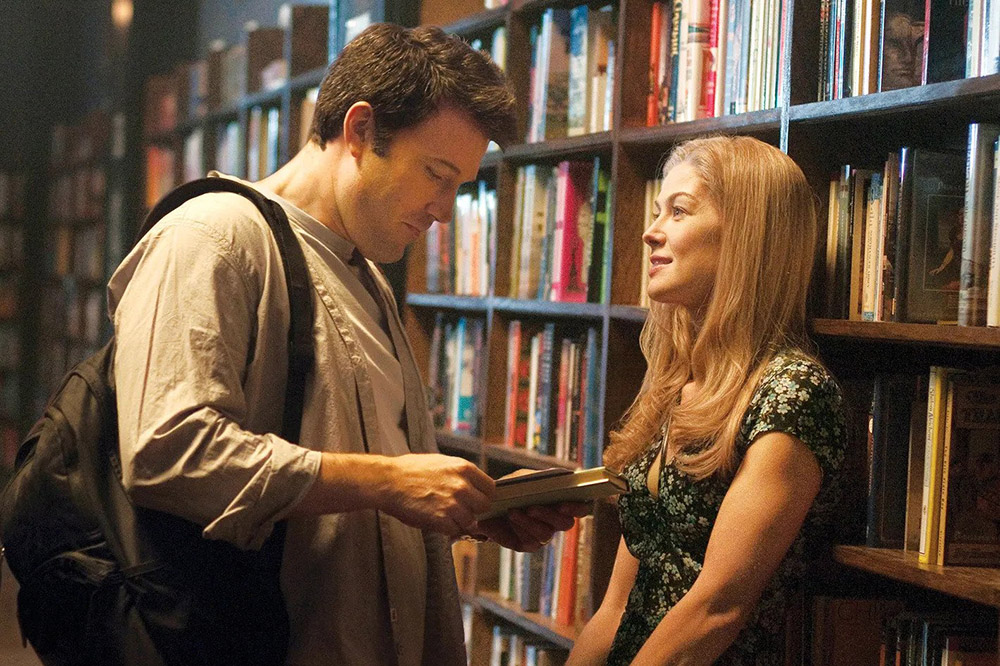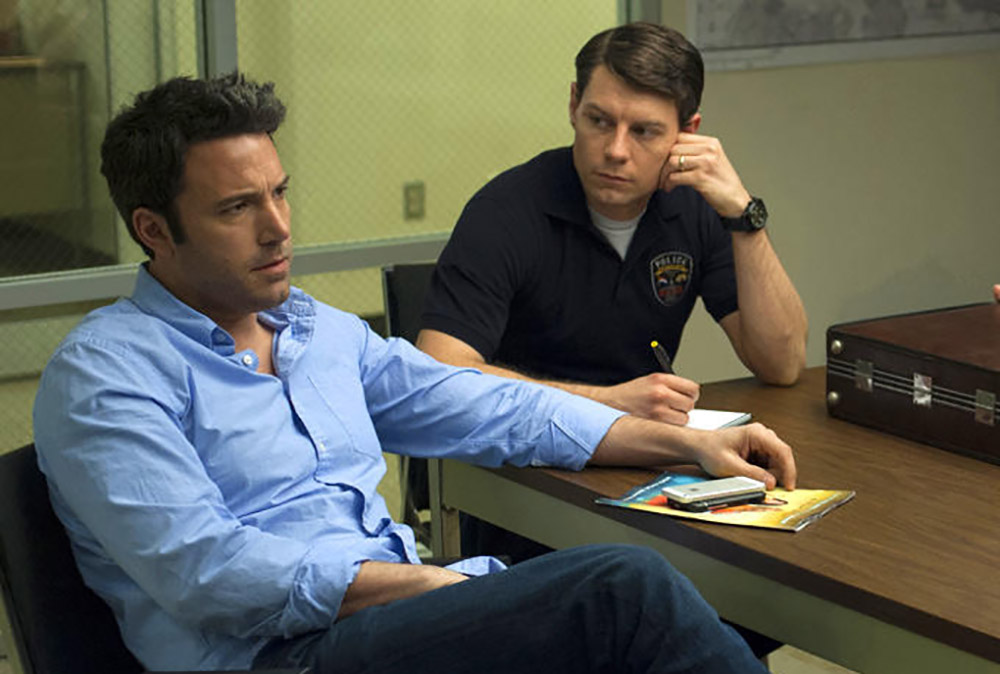In the beginning, the film convinces us to believe it as a whodunit or whydunit thriller portraying Nick Dunne’s (Ben Affleck’s) events. He becomes the prime suspect in the mysterious disappearance of his wife, Amy (Rosamund Pike). But as the story progresses, it becomes clear that it’s not only about giving the answers surrounding a typical thriller’s whodunit or whydunit questions; instead, it is keener to search for answers in an undertone way, asking far more tricky and complex questions of our present-day world.
A Representation of a Postmodern World
As we live in a postmodernist society where people interpret reality based on their perspective, everything and anything can be the truth here. “Gone Girl” is a beautiful representation of this postmodern world with media representation within the film. The media plays a pivotal role in our daily lives. And in postmodern society, they’re the key proponents to make people believe their preferred perspectives rather than showing the truth. Here they blur the line between the truth and the speculation, creating the space for subjective truths.
In the beginning, when a press conference was organized for seeking help for Amy (disappeared girl), Nick was called by the media to take a picture standing beside his wife’s missing poster with a smile. But later, that smile was interpreted as his apathy towards his wife, and he was labelled a sociopath. Also, this story became a national sensation, and Nick was declared the murderer in the media when the investigation was still ongoing. It grabbed the people’s sympathy towards the victim, Amy, and hatred towards Nick. Seeking the truth became unimportant here, and the speculations led to a witch-hunt.
Seeking Publicity Instead of Truth
This reminds me of the recent suicide of a famous Indian actor; in this case, the media highly publicized it only to capitalize on the people’s sympathy. Instead of asking valid questions about the incident and focusing on other important issues, they identified and witch-hunted soft targets. They make the people believe what they want them to believe. It’s often feels like they give the people a blue pill to stay in the Matrix.

But the vice versa is also beautifully portrayed as how a little manipulation can divert the whole narrative. Nick shifted his entire image as a murderer, professing his innocence and apologizing for his failures as a husband in a talk show. He admitted his infidelity and made an image of a guilt-ridden husband. With this, the whole narrative of Nick, the murderer, started to meltdown. And at the end, when it came to be known that he was innocent and his wife returned to him, the media acquitted him and sympathized with him like hypocrites.
The Art of Exploitation; Media’s Role
In the end, Nick asked one of the journalists why she misled people with all these absurd stories around him. The journalist answered, “I go where the story goes.” That portrays the mentality of the media personalities around any occurring incidents. It is not vital for them to find out what happened, but exploit it as an opportunity for their benefit. In the end, they give the audience a perfect ending: Amy and Nick together and news of their expected child. The past witch-hunts seem irrelevant at this point. All they want is to show a happy ending to this postmodern mystery.
“Gone Girl” is a detailed and nuanced study of postmodern society. And the representation of media is just a tool to showcase the mentality of the people living in it, where individual subjective reality overpowers the rational objectivity of truth, blurring the line between what is real and what is not.

